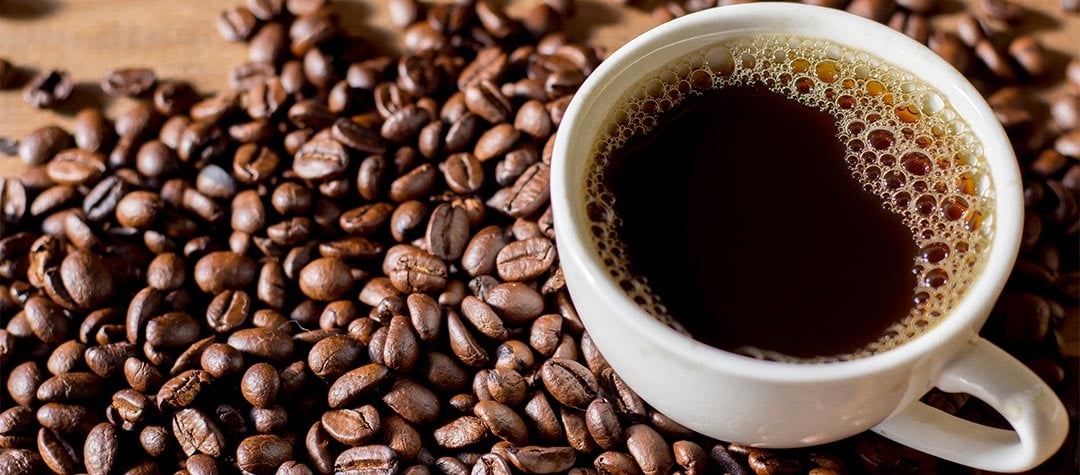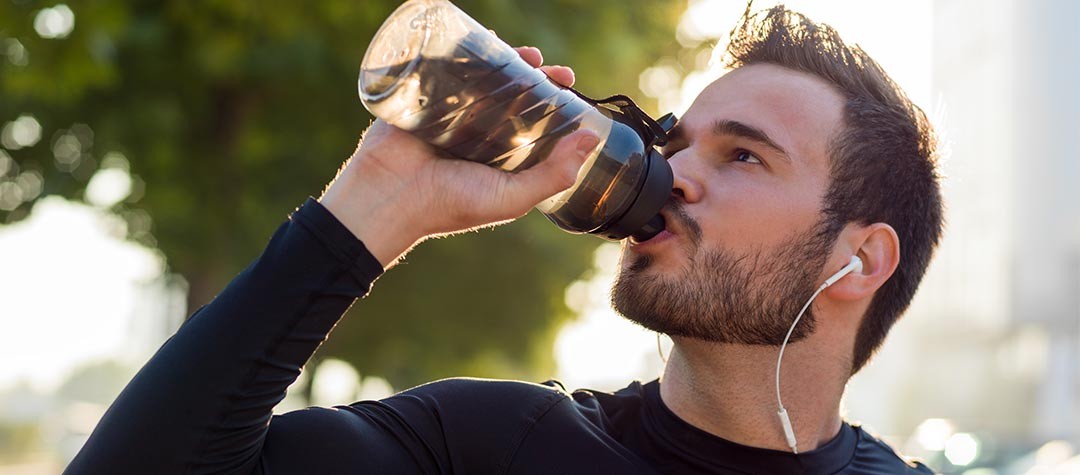A pre-race cup of coffee is as much part of the keen exercisers ergogenic arsenal as a bottle of sports drink these days. But does caffeine really enhance sports performance, or is it all something of a storm in a, er, coffee cup?
The jury is still out — but there have been some very interesting findings since caffeine’s performance-enhancing effect was first discovered in the 1970s. In a series of caffeine-related studies conducted at Ball State University, cycle time to exhaustion increased by 19.5 per cent following caffeine intake. A whole batch of studies followed this initial experiment — with mixed results.
The effects of caffeine on performance
Current researchers tend to suggest that caffeine almost certainly has an ergogenic influence in some people, in some forms of exercise. In other words, it isn’t a magic bullet. But let’s have a look at who might benefit from caffeine use — and when.
The most compelling evidence regarding caffeine’s usefulness is in prolonged submaximal endurance exercise. For runners, that means your long and steady runs — sessions in which you are exercising for a long time but not at your maximum effort. Workouts that do not use the person’s maximum effort but last 40 minutes or more are also examples of prolonged submaximal endurance exercise.
There is less research on the effect of caffeine in multi-sprint sports, such as football and tennis — although one study found that women who took caffeine prior to a four-hour tennis match won significantly more games compared to when they drank a carbohydrate drink or a placebo.
Current thinking is that it is caffeine’s effect on our brain, rather than the body, that really counts.
And that brings us to an interesting point. While early researchers thought caffeine’s benefit came from its ability to help us ‘spare’ muscle glycogen by increasing fat metabolism, current thinking is that it is caffeine’s effect on our brain, rather than the body, that really counts.
The fact that caffeine worked even better than carbohydrate in the tennis study may have been due to the caffeine having had a positive influence on the women’s concentration, alertness and speed of reactions. And that idea is backed up by research that shows a beneficial effect on activities requiring a lot of concentration and fine motor skill, such as fencing, shooting and badminton. This shouldn’t come as any surprise. Who hasn’t used a strong cup of coffee to blow away fogginess and waning focus?
It seems that the caffeine effect isn’t restricted to sharpening mental skills, either; it also appears to make exercise easier by preventing the rise in neurotransmitters associated with fatigue during exercise — so that you simply don’t feel tired. For example, in one study cyclists were able to maintain a higher intensity of effort over a two-hour period after caffeine intake, but their ‘perception of effort’ (RPE) stayed the same. In other words, they were working harder but didn’t feel as if they were.
Caffeine sensitivity
Before you go off to fill your sports bottle with cold espresso, bear in mind that the amount of caffeine-induced performance enhancement you are likely to get depends, in part, on your ‘caffeine sensitivity.’ Starbucks addicts are less likely to get a performance kick than people who only rarely partake in a cappuccino. Then again, if you aren’t accustomed to caffeine, you may find that it upsets your stomach — so it isn’t something to experiment with prior to an important race or training session.
Dehydration and urination due to caffeine
While coffee gets a bad press for its dehydrating and diuretic effect on sports people, studies have shown that caffeine consumption prior to exercise does not increase levels of urination or dehydration — possibly due to increased adrenaline interfering with the usual function of the kidneys.
Caffeine is a diuretic, but the fluid provided in the drink is enough to offset its diuretic effect.
Professor Ron Maughan, one of the UK’s top hydration researchers, says: ‘Caffeine is a diuretic, but the fluid provided in the drink is enough to offset its diuretic effect. Take 60mg of caffeine and add it to a cupful of water and milk, and you’ll likely end up more hydrated than if you hadn’t drunk it.’
How much caffeine to drink?
So how much caffeine do you need to get a performance benefit? There is no single, definitive dose that will work for everyone — though the research suggests that competitive athletes should stick to 6mg per kg of bodyweight or less, in order to balance the chances of getting a boost with the risk of exceeding the legal limit of 12mg of caffeine per 1ml of urine. This equates to roughly two to three cups of coffee for most people. Or you can dispense with your cup of coffee altogether and opt for caffeine pills.
Whichever way you get your caffeine fix, take it an hour before your workout to ensure that you reap the benefits. And remember, this is not one of those instances where ‘if some is good, more must be better.’ Too much caffeine can lead to headaches, palpitations, dizziness, tummy upsets and insomnia. And that sure ain’t going to aid your performance!














